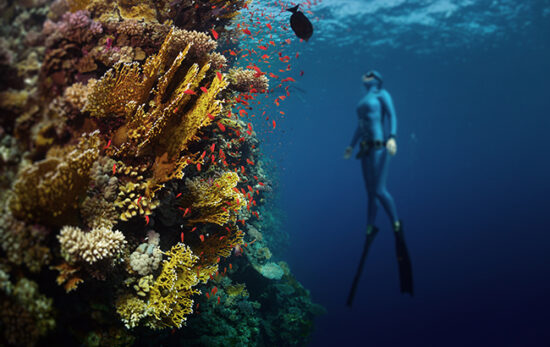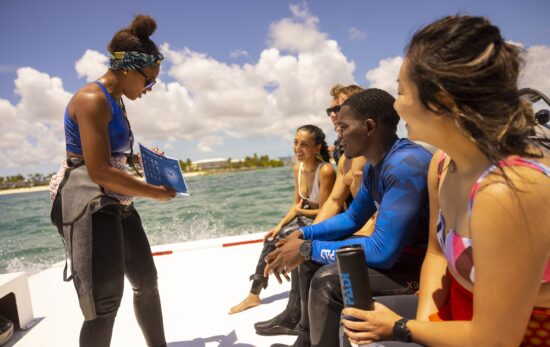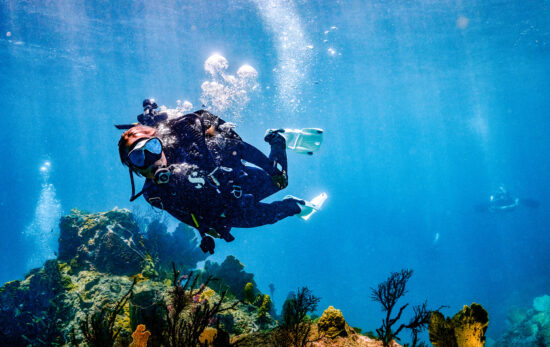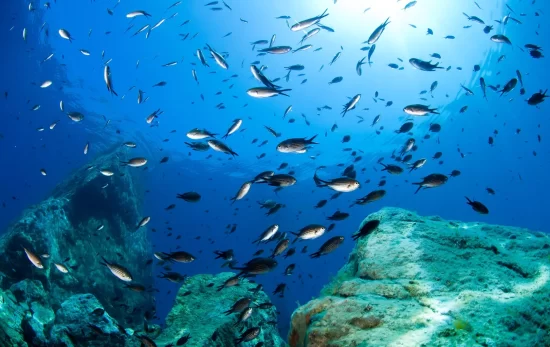If you love to scuba dive, becoming a PADI® Instructor is incredibly rewarding. In addition to sharing your love for scuba with others, the skills you’ll learn will benefit you in other parts of your life.
PADI’s IDC (Instructor Development Course) is the most recognized scuba diving instructor course in the world. The majority of the world’s successful scuba instructors gained the knowledge, skills and confidence they needed to start teaching scuba through the PADI IDC.
Cost, location and time are just a few important factors to consider when choosing the best PADI IDC for you. No matter which PADI IDC Center you choose, you can expect cutting-edge instructional technology, experienced instructor trainers (known as PADI Course Directors) and an independent final evaluation. Review the questions and considerations below to make an informed decision about your PADI Instructor training.
4 Things to Consider When Choosing a Scuba Diving Instructor Course
#1 – How much does the IDC cost with everything included?
The cost to become a scuba instructor varies depending on the location and what’s included. A PADI IDC with a low price compared to others may not include the course materials or processing fees, so be sure to ask.
If you’re thinking about doing your PADI IDC abroad, don’t forget to add in the cost of accommodations, food, and travel to/in the location. Also, consider what you’ll do if you can’t finish the IDC due to a medical issue or family emergency back home.
If you plan to stay abroad and look for work, find out:
- What job opportunities are available for scuba instructors in the area?
- Does the IDC center offer job placement assistance?
- Do you need a work permit? Can you get one easily? How often does the permit need to be renewed?
Some PADI IDC Centers offer internships where you agree to work for the dive shop in exchange for a free or discounted IDC. Internships can be a great way to gain experience and save money. If you choose this route, get an agreement in writing about how many hours you’ll work, as well as the time frame and specific details about what you’ll receive in exchange for your labor.
#2 – The IDC Location
You can find PADI IDC Centers throughout the world, and becoming a PADI Instructor is a great way to support your travel habit. That said, where you want to teach may be a deciding factor in choosing where you do your instructor training.
If you intend to teach scuba in cold water (or an area with bad visibility), doing your instructor training in clear, tropical water may not give you all the skills you need. To put a finer point on it, some dive centers may be reluctant to hire someone with only warm water experience to teach students in drysuits. Similarly, if you learn how to teach confined water skills in a lagoon or deep water pool, but your training pool back home is short and shallow, there will be a significant adjustment. All that said, a PADI Divemaster with experience assisting classes in their local environment may easily adapt what they learned in warm water once they return home.
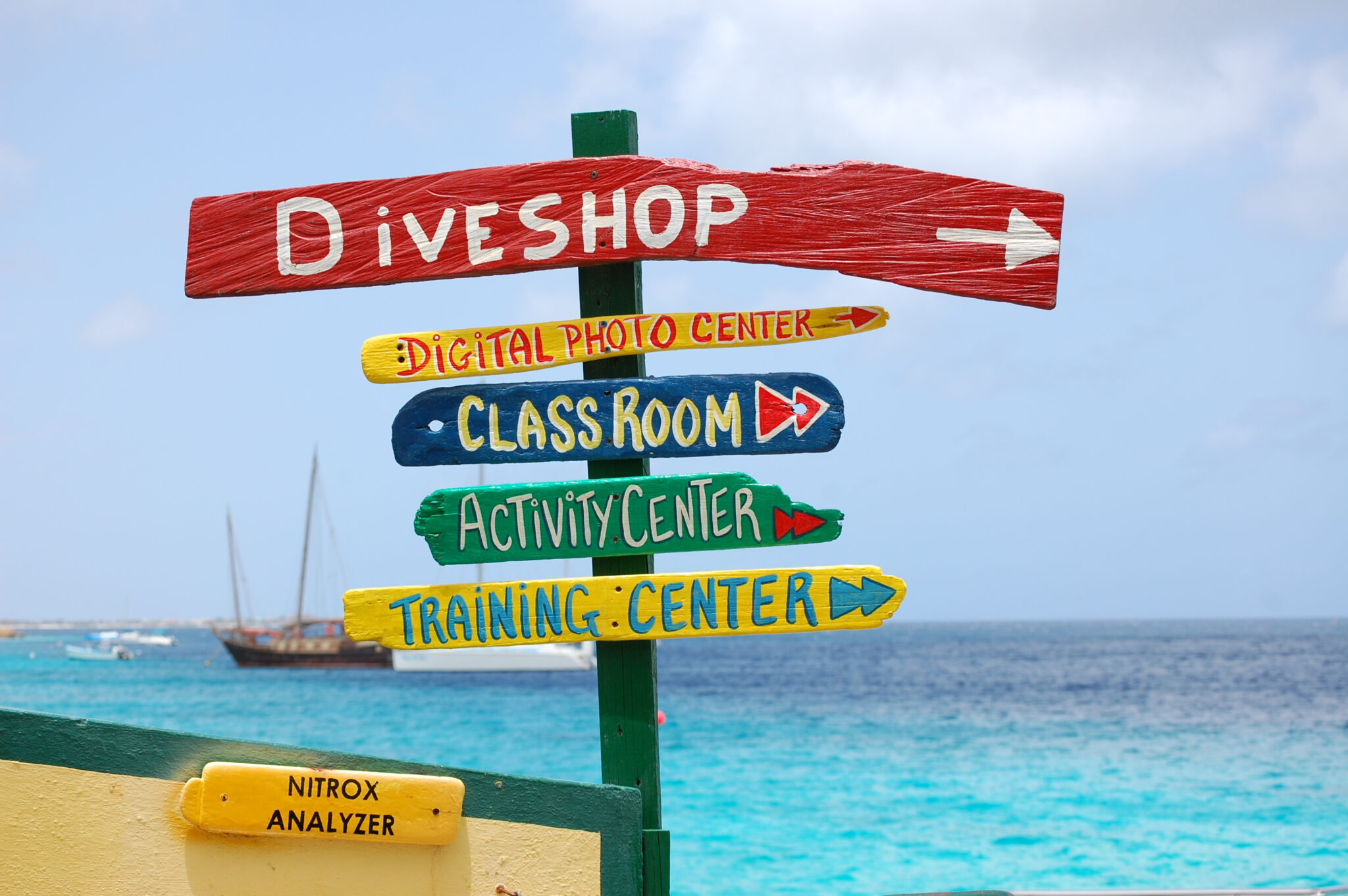
#3 – How long will the IDC take?
If you meet all prerequisites, you can become a PADI Instructor in as little as 10-14 consecutive days. This timeline requires long days, so if you’re planning to do your IDC somewhere exotic, consider scheduling extra time before or after your program to ensure you have time to explore. Not every IDC Center offers a consecutive day program, so be sure to inquire.
Some instructor candidates complete their training ‘part-time’ over several weekends. Depending on your learning style and work schedule, a slower pace may be beneficial.
Whether you choose the part-time or full-time option, make sure you have time to complete your IDC prep. Many IDC Centers require students to complete their IDC knowledge development online prior to the first day of class. Also, if your skill demos are rusty, you may want time to brush up on your in-water skills.
For detailed information on PADI IDC prerequisites, contact a PADI IDC center, Course Director, or read How to Become a Scuba Instructor.
#4 – The Course Director and Teaching Staff
Over the years, you’ve probably had teachers you liked and teachers you didn’t connect with. When choosing a Course Director, think about the personality characteristics of your favorite teachers. Were they strict? Sarcastic? Nurturing?
All PADI Course Directors follow PADI’s IDC training standards but every Course Director has their own teaching style and unique experiences to draw from. Some may have a military background, extensive wreck diving experience, or a passion for marine life identification. Some even fancy themselves amateur comedians.
If you’re not sure what type of instructor you might like, look for an IDC taught by multiple Course Directors or a program where IDC Staff (experienced instructors who assist the Course Director) are involved. Also, consider whether you’re looking for a long-term mentor or someone to show you how to teach people to scuba dive and leave it at that.
There are different ratings for Course Directors (platinum, gold and silver). These are designations based on the number of professional-level certifications the Course Director issued in the past year.
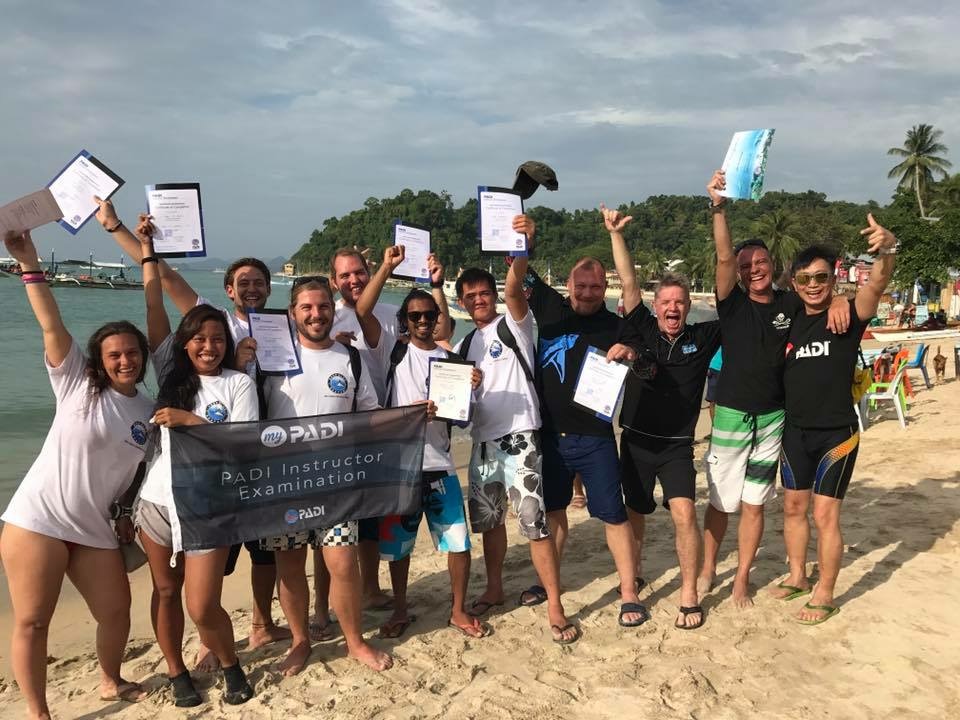
Here are a few more useful questions to ask:
- On average, how many candidates are in an IDC?
- What is the approximate start and finish time each day?
- What’s the staff-to-student ratio?
- How far away is the pool?
- Where is the open water training site located?
- What’s the travel time to the nearest hyperbaric chamber?
- Is there a medical facility nearby?
- Does the classroom have air conditioning?
- Are there staff members who speak [your language]?
- How frequently are PADI Instructor Examinations (IE’s) scheduled?
- Do you help with job placement?
- Can you assist me with my CV/resume writing?
- Which specialty instructor ratings can I earn?
- Can I gain experience in freediver, tec diving, or mermaiding to help me broaden my awareness of niche markets?
Also, take note of how quickly the dive center or Course Director replies to your messages.
MSDT Prep and Job Placement
After successfully completing your PADI IDC and passing the instructor examination, you’ll be a PADI OWSI (Open Water Scuba Instructor). With this credential, you can teach core PADI courses and a few specialties. Some instructors make their scuba CV more attractive by:
- Learning how to fill tanks
- Gaining retail experience
- Crewing on a boat
- Earning additional specialty instructor certifications (MSDT prep)
What is MSDT Prep?
MSDT stands for Master Scuba Diver™ Trainer, and it means you can teach at least five specialty courses. MSDT prep involves earning specialty instructor certifications from your Course Director. You can choose the specialties, but most new scuba instructors pick at least a few of the most in-demand PADI specialty courses (Enriched Air Diver, Deep Diver, Dry Suit Diver and Wreck Diver).
What’s the difference between a PADI IDC and CDC?
A PADI IDC Center or Resort has a PADI Course Director on staff and offers instructor-level training. A Career Development Center (CDC) is a dive center with more extensive and/or more frequent professional training opportunities. Many CDCs have at least two PADI Course Directors, a dedicated facility and offer job placement assistance for program graduates.
Choosing where to do your PADI IDC can be a big decision and we hope the information above has been helpful. Click the button below to find a PADI IDC near you.

